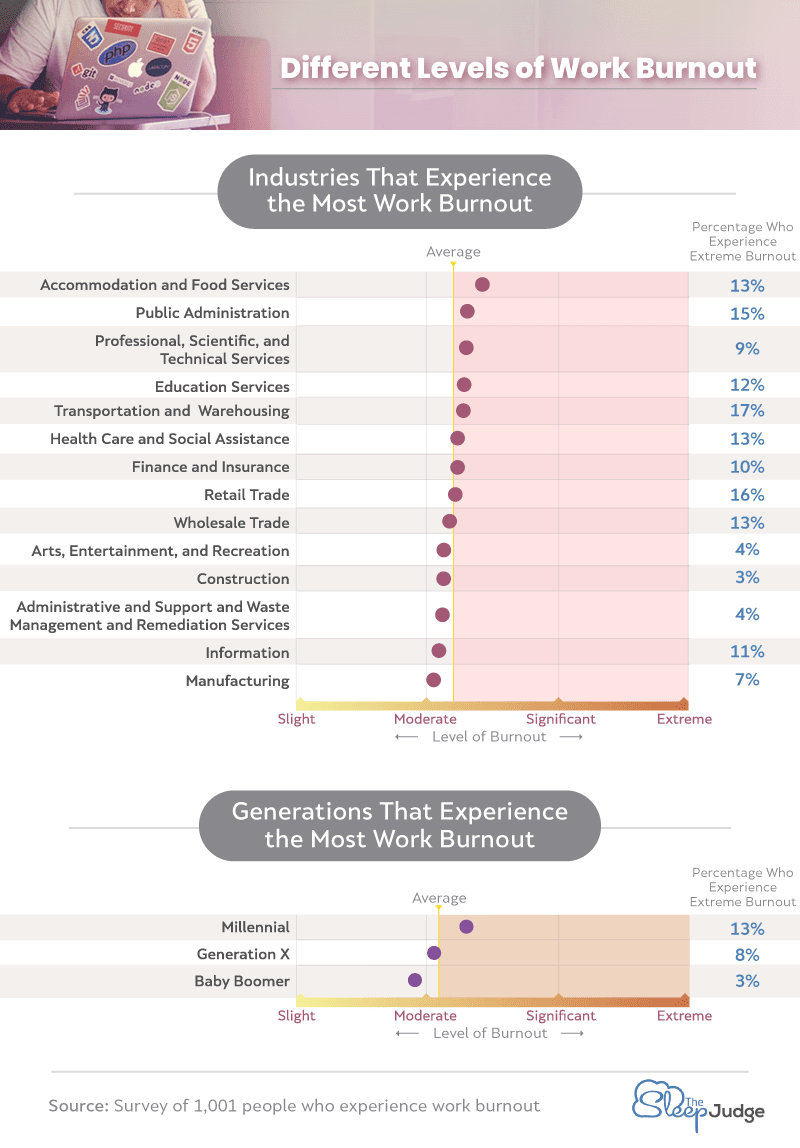
As stated in a recent Sleep Clinic article, Work burnout doesn’t just describe being tired of working. Rather, it’s a term defined by the Mayo Clinic as “a state of physical or emotional exhaustion that also involves a sense of reduced accomplishment and loss of personal identity.” Burnout also has numerous symptoms from being cynical at work to unexplained headaches, stomach problems, and other physical ailments. In fact, 93% of respondents experienced slight burnout at work.
While the full-time workweek typically consists of 40 hours, a significant portion of employees works more than eight hours a day, on average. Part-time workers were the only employees to clock in less than eight hours daily in 2017. As we learned, for those working more than 40 hours, the likelihood of work burnout increases. Respondents working 40 hours each week experienced burnout to a slight or moderate degree, while people working 41 hours a week felt significant burnout. Respondents who reported being extremely burned out worked an average of 42 hours per week.
Organizations are expecting more and more of employees, violating the personal time of their teams with constant connectivity (smartphones are awesome, and bad at the same time.)
I had breakfast the other day with a colleague, and their company is working a holiday weekend for a rollout of a new initiative. After that, there will be future rollouts and long hours, with no end in sight. Their employees are angry, stressed, possibly burning out, with no end in sight.
Kind of reminds me of the times in workplaces before unions came into existence. Long hours, lousy pay, demanding bosses, unrealistic goals, constant pressure, toxic work environments.
What is old is new again.
I anticipate backlash from employees en masse at some point across the various sectors, because what we are asking employees to do is unrealistic and wrong.

These percentages are staggering, and it’s getting worse.
It’s high time that organizations address this before the employee revolution happens again.

